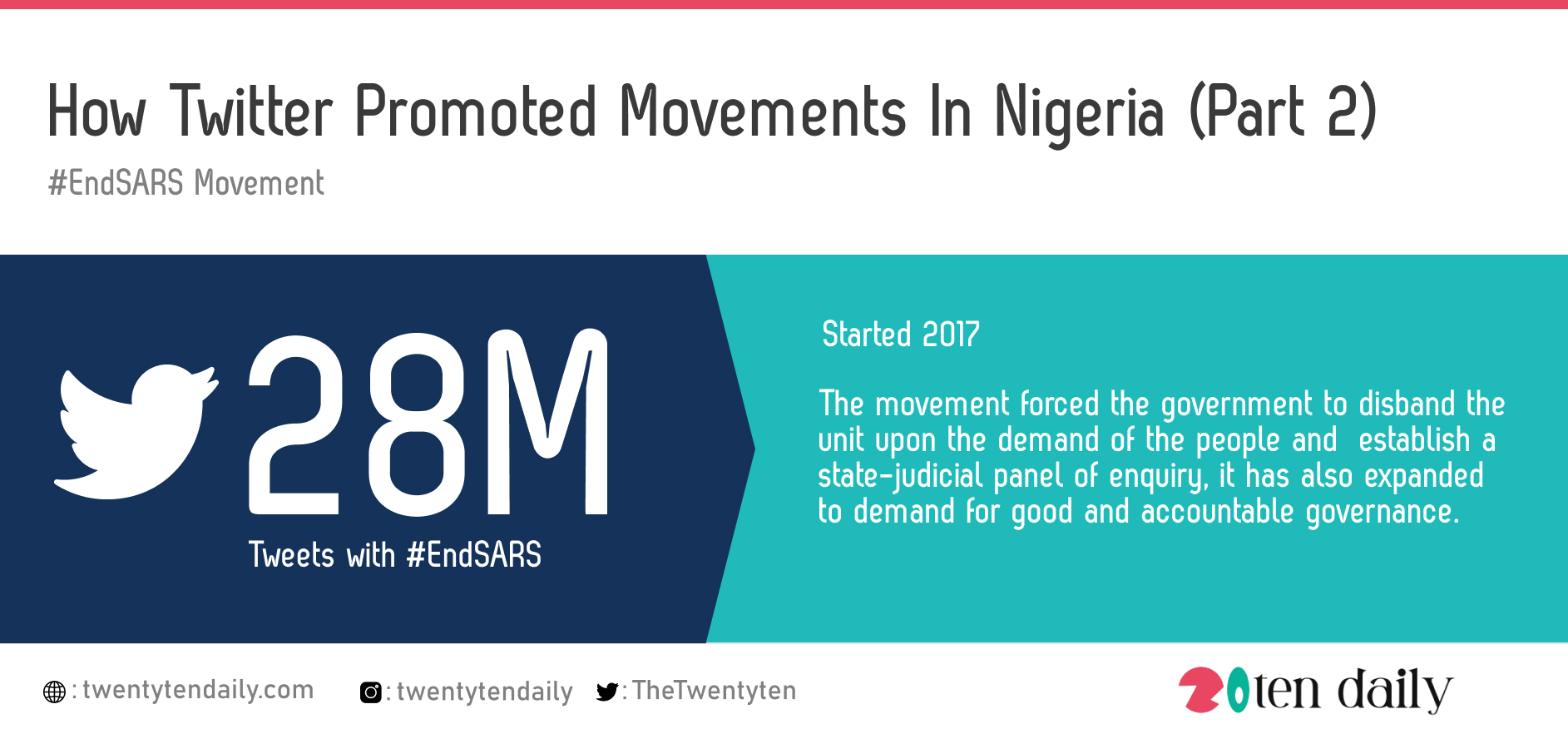While the ‘indefinite suspension’ of Twitter has generated a lot of concerns in Nigeria, the microblogging platform had, in time’s past, been used to drive opinions of the people to the government or affected agencies.
With an estimate of 40 million Nigerians operating on the platform, several movements have been staged through the use of hashtags to advocate support, prosecution, equality, accountability or transparency as well as expose wrongdoings in the country or respective states.
‘A hashtag is a metadata tag that is prefaced by the hash symbol, #. Hashtags are widely used on microblogging and photo-sharing services such as Twitter and Instagram as a form of user-generated tagging that enables cross-referencing of content sharing a subject or theme.’
In some of these movements, several international authorities and agencies have shared their opinions to affirm their position. On Twitter, it is easier to tag them along several posts.
Subsequently, while some of these hashtags had led the platforms’ trending space, it has also pulled actions from the government to investigate claims as well as issue executive orders to meet the demand of the people. Some of these hashtags are:
#ASSUStrike
Nigerians have always maintained constant comments on Academic Staff Union of Universities during its face-off with the government translating to strike and delay in academic activities.
A breakdown of the timeline of the strikes since 2010 revealed that in 2010, students stayed away from class for 157 days, in 2011, it was less as only 90 days were wasted. The strike started in December 2011 and ended in March 2012.
According to the data analysed, in 2013, the strike lasted for 150 days, 2014 to 2015 witnessed no strike action, but in 2016, the academic union of universities only went down for seven days. In 2017, the strike lasted for 35 days, 2018 witnessed a 19 days short out while the ongoing 2020 strike which ASUU embarked on on March 23 till have spent 274 days .
During these periods, the hashtags #ASSUStrike was used to express concerns of students, share opinions, proffer solutions and demands for the suspension of the strike.
#BringBackOurGirls
BBOG was one of Nigeria’s intense social media driven and female-led actions which emerged in April 2014 after the abduction of 276 girls by the Boko Haram extremist groups from government girls’ secondary school Chibok, Borno State North-East Nigeria.
Asides demanding for the release and rescue of the children, the hashtag was used to amplified tot advocate for end of kidnapping, sexual enslavement and violence against women.
The hashtag, however, attracted the support of international organizations and security agencies as well as foster the release of girls kidnapped.
#GeneralElection or #NigeriaDecides
These hashtags are fondly used to capture the activities and happenings in Nigeria before and during its elections.
Unlike other elections, the 2015 and 2019 general election saw a great use of these hashtags to campaign for support, give status reports and expose corrupt practices during this period.
Agencies like the Independent National Electoral Commission, Media, Non-governmental Organizations and Ad-hoc agencies shared results of the polls with the hashtag to reach larger audiences.
#COVID-19 and #COVAX
The Nigerian Center for Disease Control joined other countries to adopt these hashtags after Nigeria began to report cases of COVID-19 in the country.
The hashtag is used to share information on reported cases across states, safety measures as well as decisions of the government and agencies as regards the pandemic.
Also, after securing over 3 million doses of the COVID-19 Vaccine, NCDC and other affiliated agencies used the #COVAX hashtag to give status reports on the distribution and administration of vaccines across states.
#EndSARS
The EndSARS protest was a mass movement by Nigerians against the extra-judicial brutality of the Police Force and the Special Anti-Robbery Squad Unit.
The protest which started as an online campaign in 2017 became pronounced after experiencing a revitalisation in October 2020 following more revelations of the abuses of the unit.

About 28 million tweets bearing the hashtag have been accumulated on Twitter alone.
While the movement forced the government to disband the unit upon the demand of the people and establish a state-judicial panel of enquiry, it has also expanded to demand for good and accountable governance.
However, as issues pertaining to insecurity, governance, corruption, accountability and investigation began to unfold, it always created a hashtag on the microblogging platform.
Meanwhile, a study conducted by the privacy protection company, Surfshark, have revealed that Nigeria became the 66th country in the world to restrict social media access in the last six years.
The report also found that at least 30 out of 54 countries in Africa have blocked or heavily restricted social media access since 2015.

